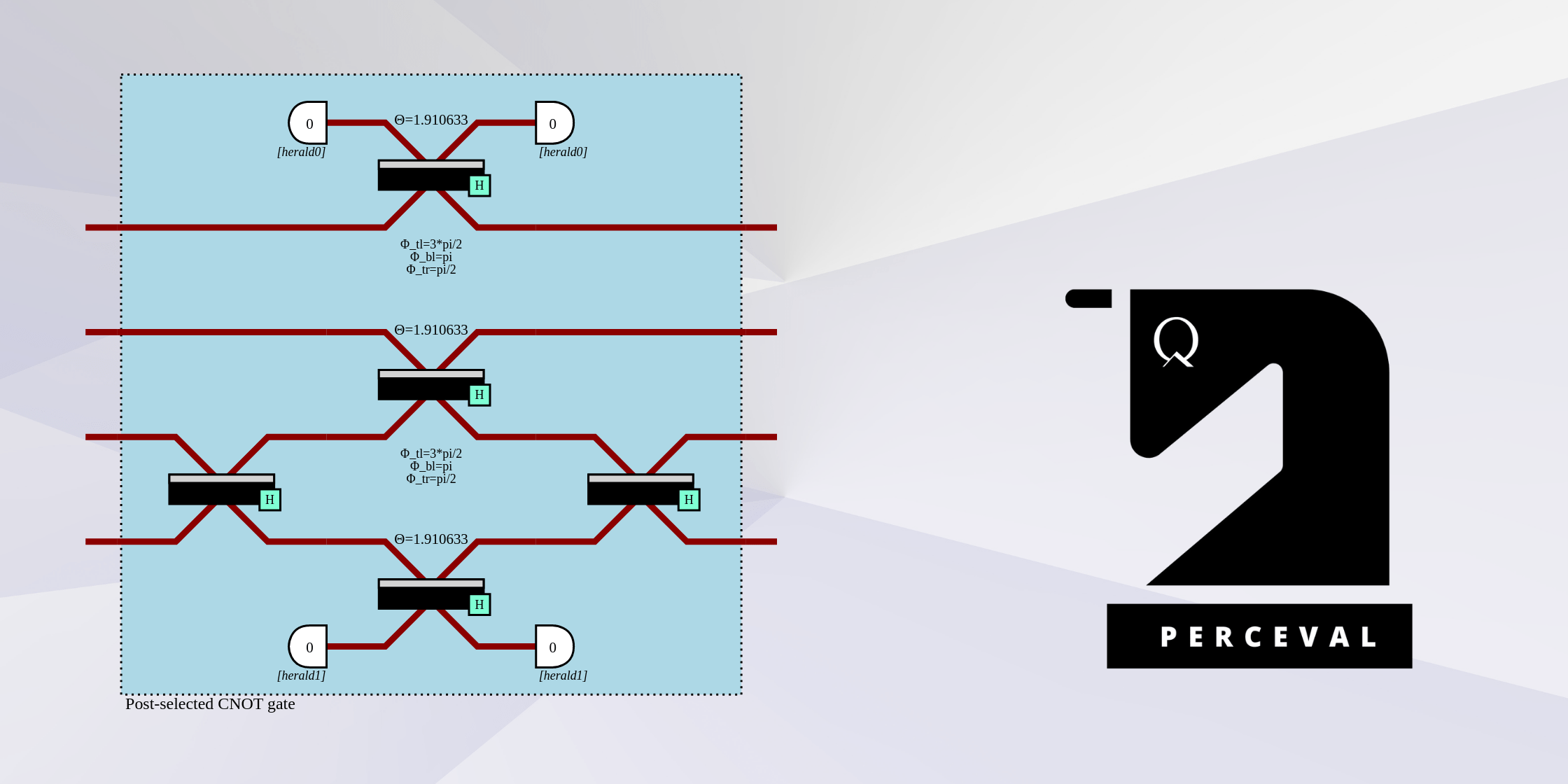Boson Sampling is a specialized model of quantum computation that involves sampling from the probability distribution of identical bosons (typically photons) scattered through a linear optical network. This quantum approach is designed to perform a tasks that are believed to be computationally intractable for classical computers, and in this way open the door to achieving quantum computational advantages.
How Does Boson Sampling Work?
- Photon Generation: Creating a specific number of indistinguishable photons
- Linear Optical Quantum Network: Passing photons through a complex network of beam splitters and phase shifters
- Quantum Interference: Leveraging the interference of photons as they propagate through the network
- Quantum Output Detection: Measuring the where the photons emerge at the output ports
With Perceval and Quandela Cloud, users have access to a native environment to design boson sampling experiments and to run on actual Quantum Processor Units.
Cutting-Edge Research in Boson Sampling
Recent and ongoing advancements in Boson Sampling include:
- Scaling Up Quantum Systems: Increasing the number of photons and modes in Boson Sampling experiments
- Quantum Efficiency Improvements: Enhancing photon generation, manipulation, and detection efficiencies
- Quantum Error Mitigation: Developing techniques to reduce errors in Boson Sampling implementations
- Classical Simulation Bounds: Improving classical algorithms to simulate Boson Sampling, clarifying the quantum-classical boundary
- Quantum Applications Exploration: Investigating potential practical applications of Boson Sampling beyond proof-of-principle demonstrations
Frequently Asked Questions About Boson Sampling
- Is Boson Sampling equivalent to a universal quantum computer? No, Boson Sampling is a specialized model of quantum computation. While powerful for certain tasks, it can’t perform all the protocols a universal quantum computer can, while on the other hand it can be more efficient for those it can perform.
- Has Boson Sampling conclusively achieved quantum advantage over classical computers? As of 2024, while significant progress has been made, a conclusive, universally accepted demonstration of quantum advantage through Boson Sampling is still a subject of ongoing research and debate in the scientific community.
- Are there practical applications for Boson Sampling beyond theoretical quantum computing? While initially proposed as a theoretical tool, researchers are exploring potential applications in areas like molecular simulations and certain optimization problems. However, practical, real-world applications remain an open and exciting area of quantum research.


